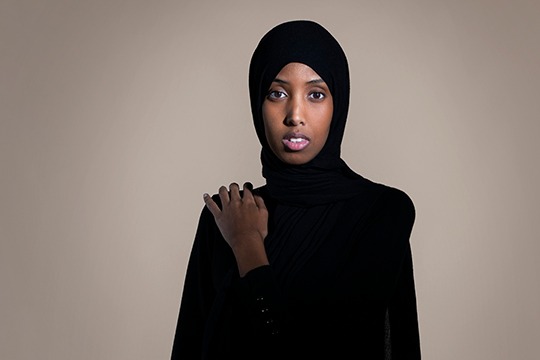Congratulations! The jury calls you a ‘model student’ who shows ‘leadership, motivation and perseverance’. How does that make you feel? “I didn’t see it coming, to be honest. I’m so happy with MobileUurka that I never even thought about it being an exceptional achievement. My app brings my passions together: the future of healthcare and an improvement in the medical situation in Somalia. My quest for innovation is also the reason why I decided to study Science, Business and Innovation after Biomedical Sciences. I’m really looking forward to the coaching programme and I’m investing the prize money straight away in my app.”
MobileUurka has an ambitious target: reducing maternal mortality in Somalia. Can you tell us a bit more about the situation there? “Somalia, my parents’ country of origin, is one of the worst places in the world to get sick. This is also reflected in the maternity care: 1 in 12 women die from complications during pregnancy. Somalia is not a stable country and the healthcare is poor. You only get what you pay for and the closest doctor – outside the cities, at any rate – is generally a long way away. In addition, information about pregnancy is passed on from mother to daughter rather than through sharing well-founded knowledge.”
How will your app help to remove those obstacles? “In our pilot region seventy percent of people have a mobile phone. So I am working with co-founder Daniyal Salani, also a VU Amsterdam student, to develop a healthcare app for pregnant women. They fill in their details and then get information about their status and what happens in each trimester. Through a system of alerts they can call for help at an early stage. Additionally, a midwife can monitor the women remotely. By anticipating an emergency the women have time to arrange transport and the healthcare costs are generally a lot lower.”
How far have you got with developing the app and rolling it out? “In the past few months we have had intensive contact with a mother and child centre in Somalia that is owned by an enthusiastic midwife. She has helped us to find out what the problems are and how the app can be of benefit. Very valuable, because I have a purely western view. Last summer we ran a pre-pilot. Our moment of truth will come in March: I’m going to Somalia for two months to test the app in practice and implement it.”
You were not born in Somalia. What’s it like to be actively involved with your parents’ country of origin? “It strengthens my ties with the country and with my parents. They came here because they had to flee the country to seek safety. More than twenty years later their daughter is going there to improve people’s safety; they are hugely proud of that. They had to give up a lot in order to provide opportunities to my sisters and me. I regard this as a tribute to them.”
You have taken a lot of important steps. What do you ultimately hope to achieve? “My dream is to roll out the app throughout Somalia, then in East Africa and finally across the whole of Africa if possible. I have linked my Master’s thesis to MobileUurka and want to pursue it full-time after graduating. This means that Daniyal and I will have to start thinking about revenue models, but first of all we have to fully develop the technology. The average age in Somalia is 17 and women give birth to 6 or 7 children – that means that many women will die unnecessarily in the years ahead. I want to do everything I can to combat that.”
Translation by Taalcentrum-VU.
